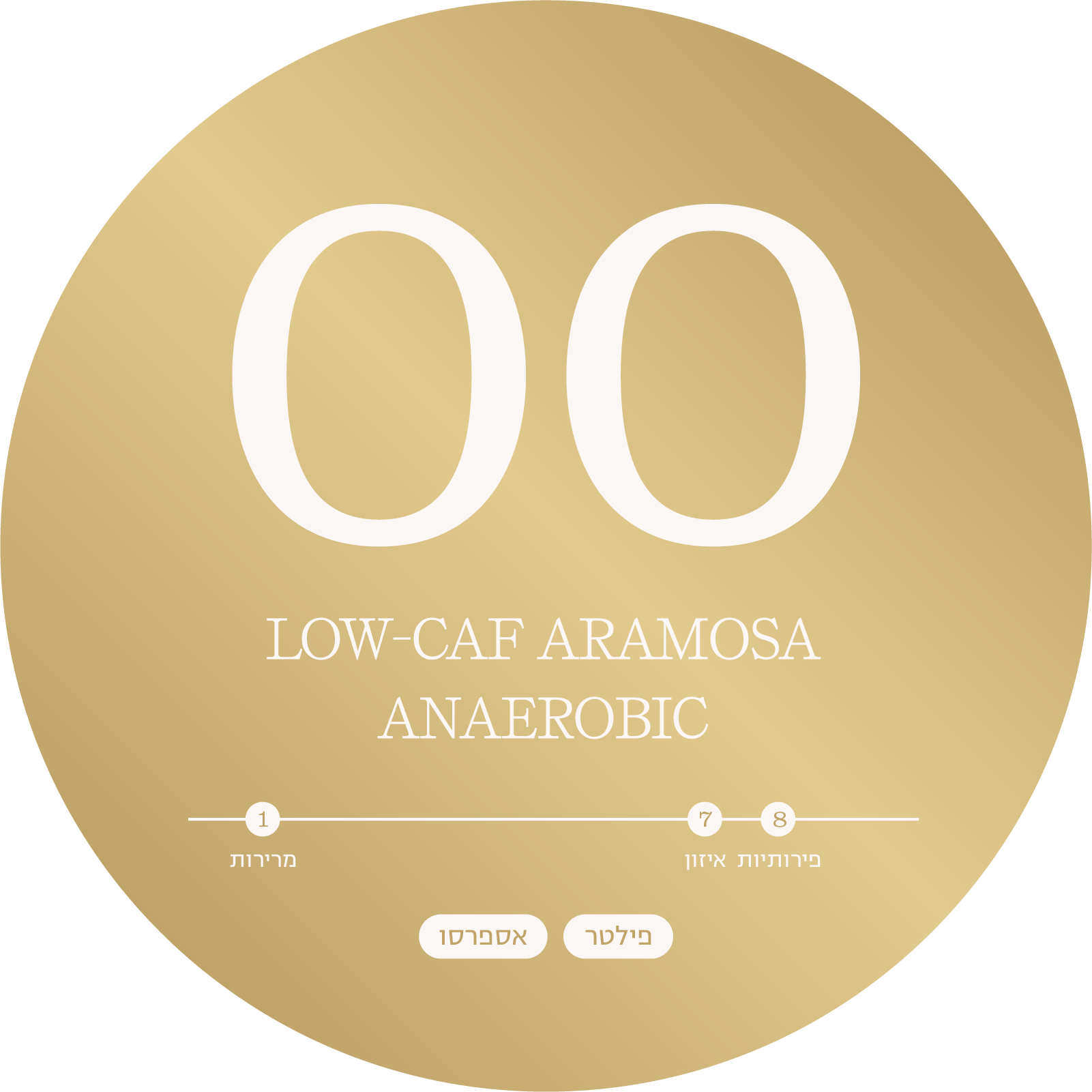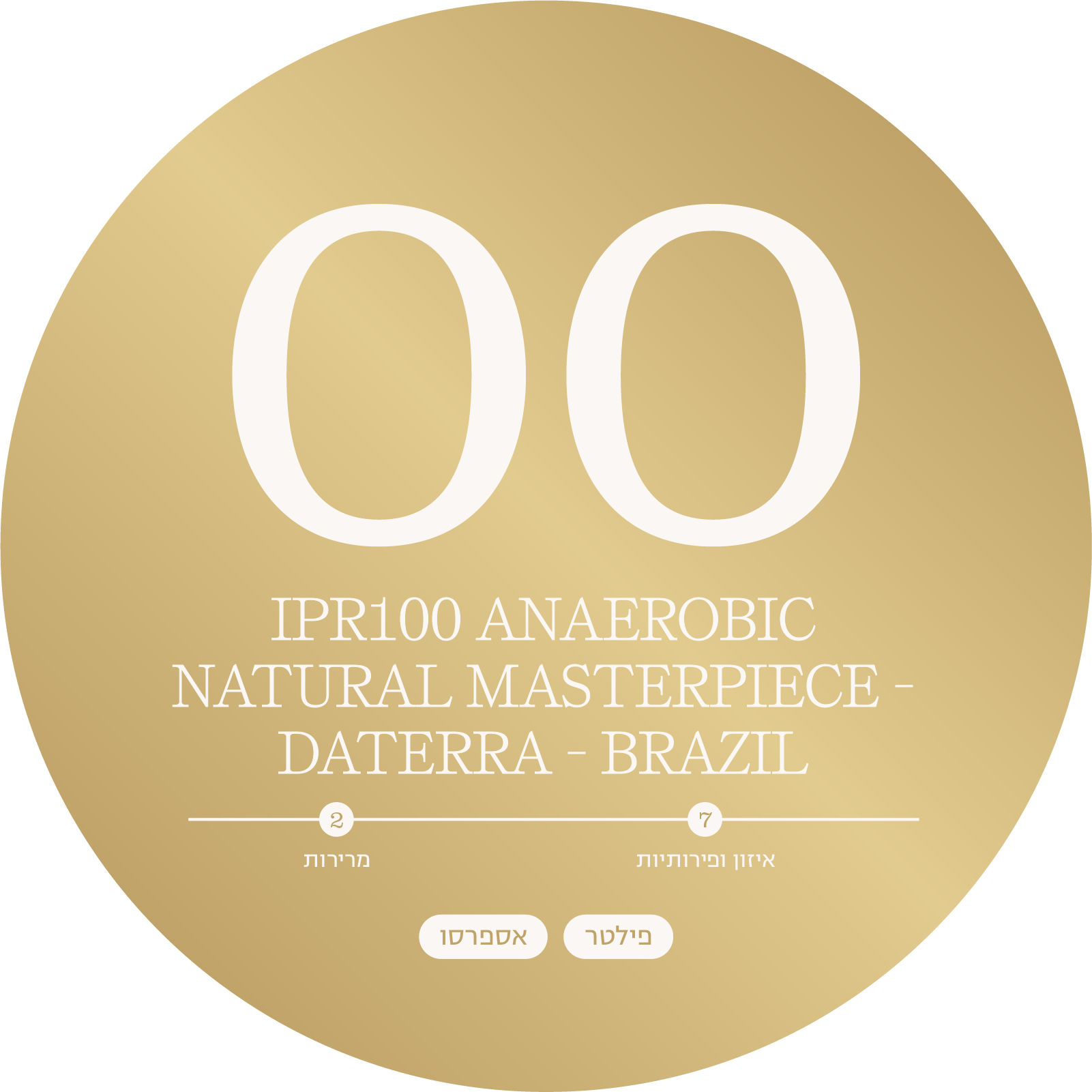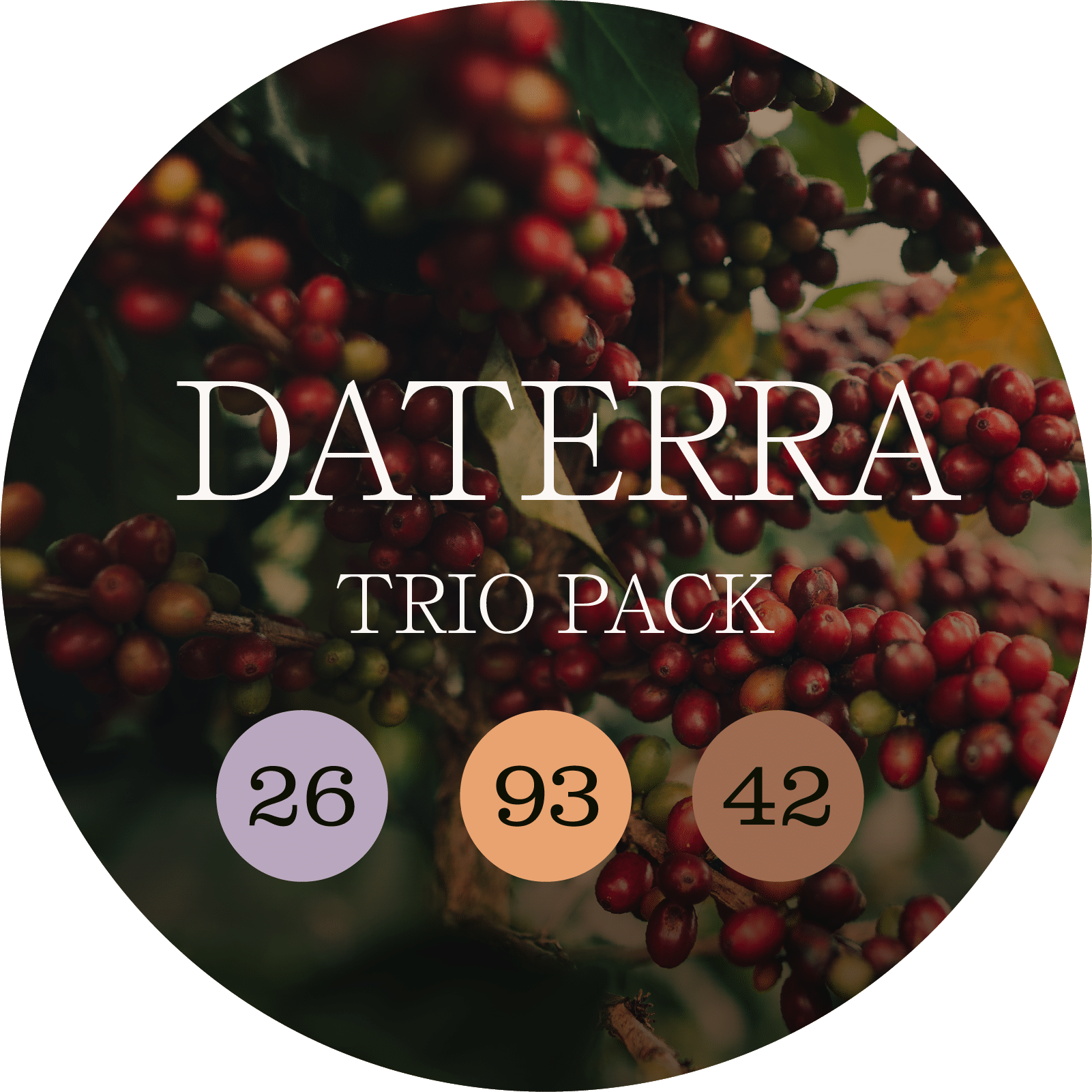The Masterpiece series is the crown jewel of many of the world’s best coffees with a taste score starting at 89. A special Datra coffee series that is sold every year at an exclusive auction for micro-plots of special varieties with innovative processing methods and is used by many competitors on the stage of the various global coffee competitions.
The types of coffee in the pack:
Laurina Anaerobic Masterpiece - Daterra - Brazil
Datara has been researching the Arabica Laurina variety for 12 years. Using agronomic and genetic methods in their field of research, at the Boa Vista Experimental Farm, they were able to maximize the way the plant adapts to their terrain and help these tiny coffee bushes thrive. They now have lorina trees planted in several plots on their farm.
The Laurina variety (also known as Pointed Bourbon Bourbon Pointeu) is a genetic branching of the bourbon variety that originally comes from Reunion Island (formerly called Bourbon). Laurina contains 0.3-0.5% caffeine compared to regular Arabica which contains 1.4% caffeine, therefore there is less bitterness in coffee because the caffeine molecule is bitter in taste.
How poetic it was when Amy Pokhari won first place with Datara’s Laurina in 2018 at the Brewers World Championship held that year in Brazil at Belo Horizonte.
Since then the Laurina variety has become very famous in the specialty coffee world. It is expensive because when the supply is very low mainly because the coffee bushes of the Laurina variety are quite small and with a low yield relative to their size.
This smooth was processed using a natural anaerobic method with fermentation in sealed stainless steel tanks for 62 hours. After fermentation, the fruits finish drying on hanging nets for 15 days and finish drying in a controlled environment in a mechanical dryer.
Aramosa Anaerobic Masterpiece - Daterra - Brazil
Badatra is very proud of the Harmosa variety of coffee they grow and in recent years this interesting hybrid has been in great demand among well-known coffee connoisseurs who compete in world championships (Barista, Brewers…). At Datra’s Boa Vista experimental farm, they do a lot of interesting experiments in coffee cultivation, genetics and post-harvest processing. One of them is a hybrid of an Arabica species from the Typica variety and a coffee species called Rasmosa. There are over 120 species of coffee and Arabica is just one of them. The racemosa originates in Mozambique and is found growing wild in the coastal forests north of Lake St. Lucia. Rasmosa has very interesting properties, a combination of low caffeine content (half a blend and a quarter from a Robusta), delicate flavors with floral aromas and low bitterness (the source of bitterness is caffeine). To process this micro plot (240 kg) they chose a natural anaerobic method in which the coffee fruits are closed in a sealed container to allow air in. After most of the oxygen in the container is used up (aerobic process) the fermentation process that uses carbon dioxide (anaerobic process) begins to increase. The 48-hour fermentation, the fruits are removed from the containers, the drying is finished on hanging nets for 14 days and the final drying is done in a controlled environment in a mechanical dryer. Only then are the beans separated from the rest of the shell.
Masterpiece: Daterra Brazil Naomi Anaerobic Maceration
Size: 200 grams
A Daterra special coffee series straight from their experimental farm, Boa Vista, which is sold every year in an exclusive auction of special varieties employing innovative processing methods.
In this plot, only this experimental and lesser known variety – Naomi – is grown and processed using an anaerobic method (oxygen-free fermentation). In short, this process encourages an anaerobic environment for microorganisms – the whole fruits are fermented in a closed stainless steel container, which enables the production of very unique and accentuated flavor profiles in this coffee, such as toffee, cocoa and tropical fruits. We highly recommend trying this amazing
result in filter and espresso, at home or at our cafes
Arara Anaerobic Masterpiece - Daterra - Brazil
Arara is a natural hybrid between varietals Obata and Yellow Catuai. It’s a tall and vigorous plant that gives yellow cherries and is also resistant to some diseases, like the leaf rust.
Process: The Arara cherries ferment inside a tank equipped with a valve system that prevents any gas from entering the tank. As the cherries ferment, they release CO2 and, because carbon dioxide is denser than oxygen, it pushes the lighter gas out through the valve. After a few hours, the tank environment becomes completely anaerobic, allowing the perfect conditions for microorganisms to perform enzymatic reactions inside of the beans.









